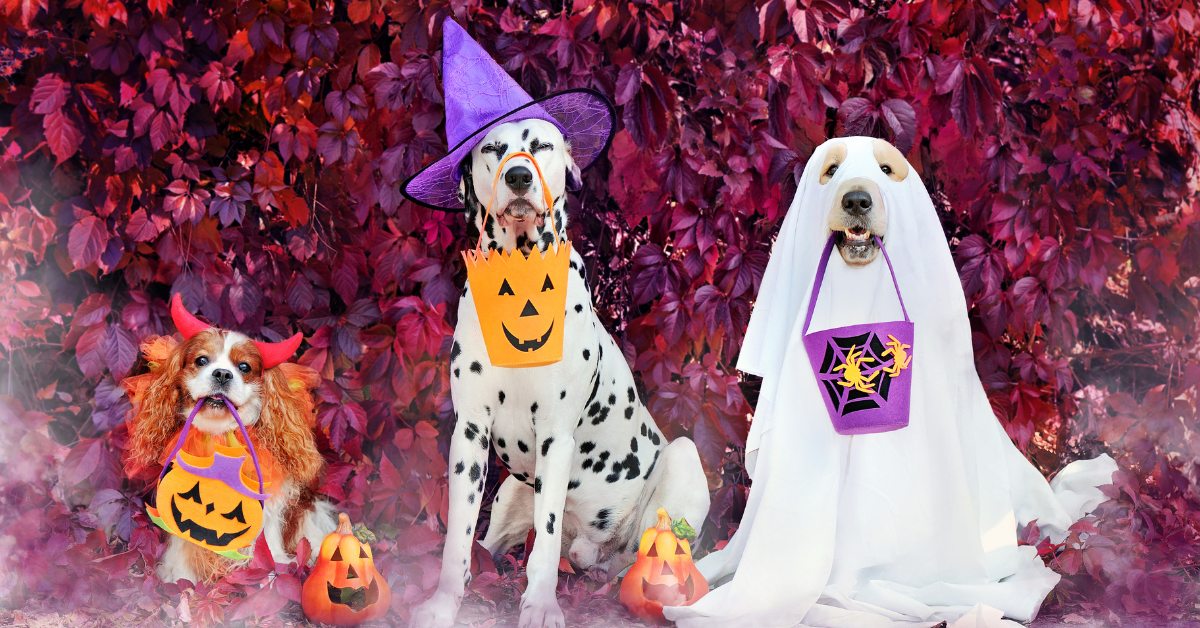Easter Safety, Tis The Season.
It sure seemed like our friend the groundhog was right this past weekend and spring was coming soon. Even though there may be a bit of snow in the forecast this week, the end of the month will still bring one of our favorites, the Easter holiday. Each holiday has its hazards to our furry friends and Easter is no different. Here are a few Easter Holiday Safety Tips to keep our floofins safe this coming Easter:
1. Say No To Chocolate Bunnies. Small amounts of theobromine, the ingredient in chocolate that is toxic to pets, can cause vomiting and restlessness. Large amounts can be fatal. A lethal dose of theobromine depends on the size of the dog and the type of chocolate. Dark chocolate or baking chocolate is worse than milk chocolate because of the higher theobromine content. To get an idea of how much chocolate might be fatal to your dog, see the estimates below:
- 4 to 10 ounces of milk chocolate or 1/2 to 1 ounce of baking chocolate for small dogs, such as Chihuahuas and toy poodles.
- 1 to 1 1/2 pounds of milk chocolate or 2 to 3 ounces of baking chocolate for medium-sized dogs, like cocker spaniels and dachshunds.
- 2 to 4 1/2 pounds of milk chocolate or 4 to 8 ounces of baking chocolate for large dogs, including collies and Labrador retrievers. If you think your dog has digested large amounts of chocolate, contact your veterinarian.
2. Xylitol, Just Say No. Xylitol, an artificial sweetener used in many candies, chewing gums and baked goods, is toxic to dogs and ferrets. Even a small amount of xylitol can cause a steep drop in your dog’s blood sugar causing seizures, coma and possible death. At higher doses, xylitol can put your dog into liver failure which has unlikely recovery results. There is also a recent issue with xylitol being added to peanut butter which can harm your dog while plain peanut butter is perfectly safe so make sure to check your labels!
3. Other Easter Treats To Watch Out For. While most of us know chocolate is a danger, sometimes we don’t think about non-chocolate candies and random things like grapes, raisins, currants and macadamia nuts which you might also see in an Easter basket.
Some foods that are considered good for people can be very dangerous for pets. The link below highlights some of the most common foods that can be dangerous to animals.
For a list of toxic foods from the Humane Society of The United States, click here.
4. Away With Toxic Plants. While festive plants like Easter lilies, cyclamen, and amaryllis are beautiful and bring the feel of spring, some of them are toxic to our furry loved ones, especially our feline friends. Easter lilies and other lilies can cause kidney failure and death in cats. All parts of the lily can be toxic. Eating just one leaf can result in severe poisoning. Cats will generally vomit and become depressed within 2 hours. The vomiting may subside, but the cat will not eat and continue to become more depressed. If you see any of these symptoms in your cat or suspect your cat has sampled part of your Easter lily, contact your veterinarian immediately. Cyclamen’s highest risk comes from eating the root and can cause vomiting, drooling, and diarrhea, while eating a larger amount can result in heart rhythm abnormalities, seizures, and even death. The bulb is the most dangerous part of the amaryllis, but ingesting any of it can cause your pet to suffer from vomiting, drooling, and abdominal pain. In some cases, they may even develop a sudden drop in blood pressure or breathing problems.
More than 700 plants have been identified as producing physiologically active or toxic substances in sufficient amounts to cause harmful effects in animals.
For a complete list of toxic plants, including our Christmas favorite, the Poinsettia, click here.
5. Ditch The Plastic Grass. Plastic Easter grass is an interesting, shiny, crinkly material that cats especially can’t help but want to eat. Materials like this (string, tinsel, yarn, etc.) cause what is called a linear foreign body issue. A linear foreign body is any string-like object ingested (or partially ingested) that causes gastrointestinal obstruction. You might see the material visible in the mouth or anus along with vomiting or straining to defecate and a painful abdomen. Trying to pull out visible grass or string is not recommended, as this can cause more damage if the piece is long and trapped far inside the body. Call your veterinarian if you suspect that your cat has sampled the Easter grass.
6. Egg Hunts At Your Discretion. Loud noises, sudden movements by small children, and large groups of people can be highly stressful to pets. Your pet may prefer to hang out in a quiet area of the house during the family egg hunt or dinner celebration. If your pet does well with crowds and excitement, consider looking for a local doggy egg hunt and enjoy an Easter nose-work session. Hunting down treats in Easter eggs is a great game to stimulate the nose and the mind if your dog can handle the crowd, plays nicely with other dogs, and has no resource guarding tendencies.
When Easter weekend comes around, don’t forget to make a special Easter basket for your pet with fun treats and new toys so they can still participate in the celebration. Start with a basket and paper grass and add items like healthy treats, new toys and maybe even a new collar/leash.
Do you live in the chicagoland area and are looking for a pet care specialist? Get in touch with our team today:
Other Recent Blog POsts

Pet-Friendly Halloween in Chicago 2024
October 22, 2024
Protecting Dogs from Theft in Chicago
October 16, 2024
Pet Obesity Awareness Week: Keeping Chicago Pets Healthy
October 9, 2024
Pet-Friendly Fall Events in Chicago 2024
October 2, 2024
National Walk Your Dog Week is Coming!
September 25, 2024

